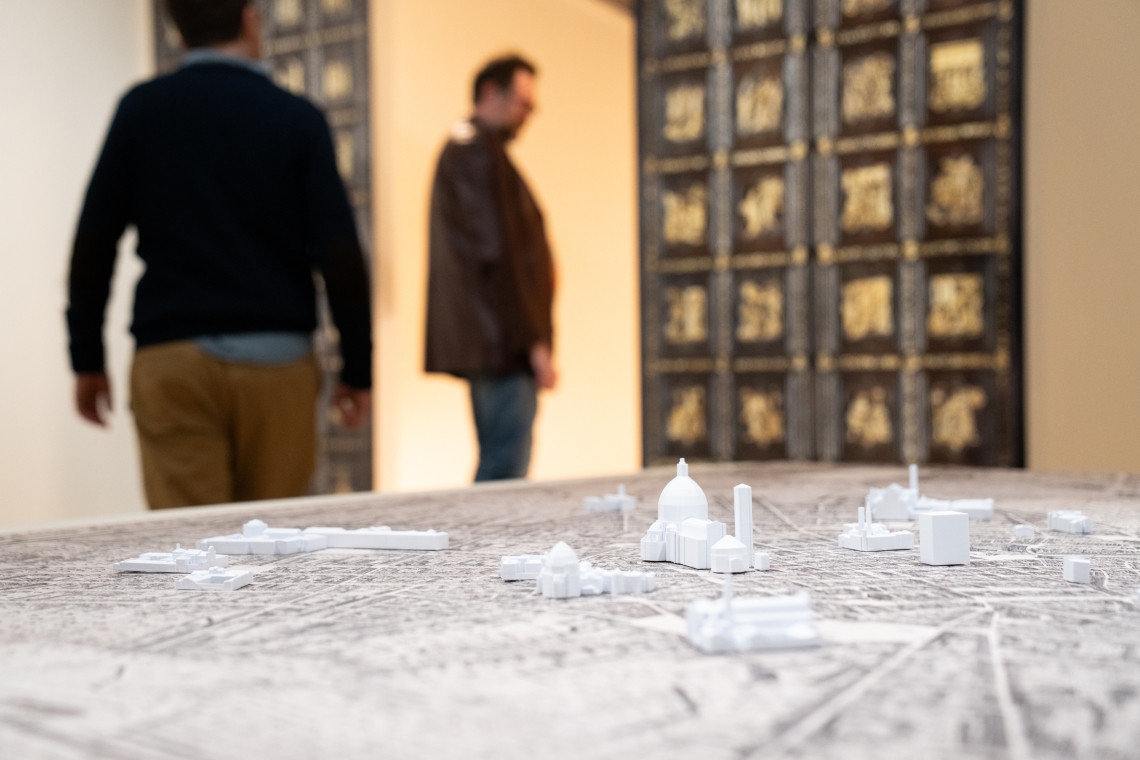Florence As It Was Chosen for National Competition The interdisciplinary research project has been selected to participate in an open competition among medieval digital humanities projects for K-12 students.
The Florence As It Was project, an eight-year research project at W&L that is reconstructing 15th-century Florence, Italy’s architectural layers with a 3D interactive map, have advanced to the final four in an open competition among medieval digital humanities projects for K-12 students.
The project, which began in 2016, was recently chosen among the top 16 project submissions in the Middle Ages for the Educators’ Sweet 16 Open Access Resource (OAR) competition. Princeton University funds the competition, assisted by a Centennial Grant from the Medieval Academy of America (MAA).
“The projects that form the Sweet 16 of this tournament illustrate the depth and breadth of medieval studies in the 21st century, as well as how a new generation of scholars have looked to new technologies to deliver content and meaning,” said George Bent, Sidney Gause Childress Professor of the Arts, who oversees the Florence As It Was project along with his co-researchers David Pfaff, senior academic technologist and director of the IQ Center, and Mackenzie Brooks, associate professor and digital humanities librarian. The trio has worked with an ever-growing cohort of undergraduate student researchers over its eight years.
Through Dec. 29, viewers could cast their votes in the first round of play, featuring eight head-to-head contests. The projects with the highest number of votes then advanced to the quarterfinals. From Dec. 30 through Jan. 6, the public had the chance to vote in the quarterfinals, featuring four head-to-head contests. The four winners of that round have won a cash prize and travel stipend to attend the MAA Centennial meeting in March in Cambridge, Massachusetts. After screening all four semi-finalist submissions at the MAA meeting, the two finalists (as voted on during the semi-finals from Jan. 6-20) will be announced, and the final vote will be taken. The winner will receive a $1,000 cash prize.
Bent said he and the rest of the FLAW team are excited to participate in the competition, which aims to make the study of history accessible and appealing to students nationwide.
“Creating free and accessible educational content for K-12 audiences opens doors of learning to curious young people who might not otherwise have the ability to engage with this kind of material,” Bent said. “We applaud Princeton University and the Medieval Academy of America for initiating this call for innovative examinations of the past.”
The semi-finals round of the competition closes on Jan. 20, and only one vote is allowed per round. Learn more about the competition on the Middle Ages for Educators’ website.
 Staniar Gallery’s recent exhibition on the Florence As It Was project.
Staniar Gallery’s recent exhibition on the Florence As It Was project.
You must be logged in to post a comment.